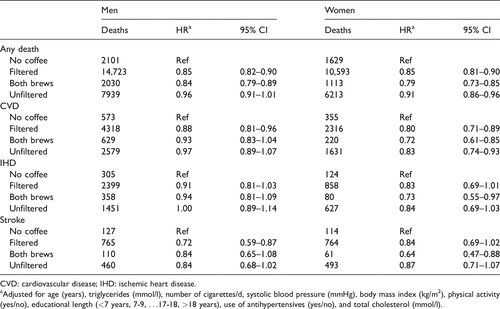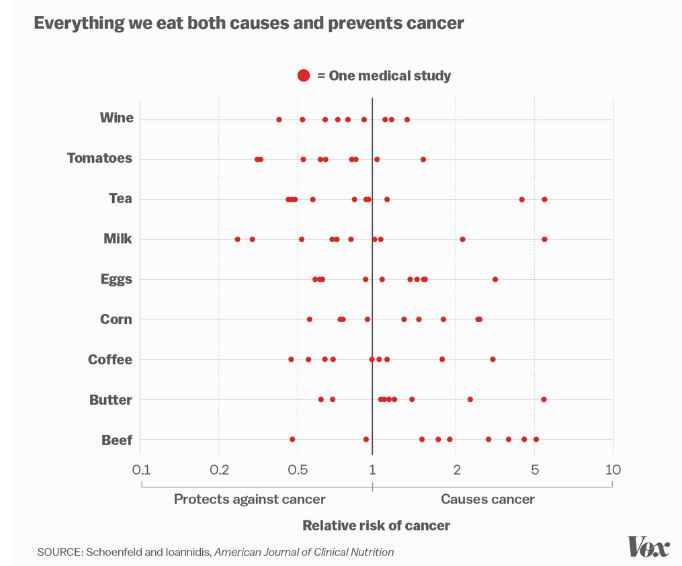Filtered coffee has been linked to lower risk of type 2 diabetes by an epidemiology group ... Before you get too excited about this "filtered" coffee preventing diabetes, we need to remember what they are measuring - numbers, not coffee. This is not a science finding, it is an "exploratory" result. Drinking coffee, filtered in paper or Turkish in a pan, is not going to prevent diabetes any more than a juice cleanse prevents whatever that stuff is claiming to prevent.
That was written last year, but another story making a similar claim about a coffee brewing process has caused corporate journalists to swoon yet again this week. Thanks, CNN, for being the poster child of reasons why corporate science journalism jobs are going extinct and the public don't miss them.
"How to make the healthiest coffee during COVID-19 lockdown" coos the press release that inspired CNN in that 'must be timely news way' journalism students are taught to write press releases, as if a brewing process were going to be any less or more healthy during SARS, MERS, H1N1, or the flu each year.
Scientists don't ever want to be wrong so sometimes that makes them too timid to be right (read also: Will Somebody Please Find Me A One-Handed Scientist?? ) but I have no compulsion that way, so I will be blunt. These claims are not bad science, they are not science at all. The quickest way to be sure no science was involved is when "wellness" is in the URL of the article. "Wellness" might as well mean "rich" because that is the biggest factor in longevity, and if you have ever looked at the ads for "wellness" products, you already know the gender, race, and financial demographic they are targeting.
What's different about the new paper from the December one? Well, last year this same goop was published in the Journal of Internal Medicine while now it's in European Journal of Preventive Cardiology. It also shares in common what about 10,000 papers share each year. Provocative claims based on data dredging designed to get media attention but not inform public health one bit. What is meaningfully different is that uses a correlation of lipid-raising substances to heart disease, already suspect, unless you think coffee causes heart disease, and then suggests filters reduce that chemical enough it saves lives.
Building on a risk factor for a risk factor, they examined survey claims about what kind of coffee 500,000 people drink. Right there, we have a giant confounder. Many people can't even recall what they ate for lunch yesterday, and they certainly can't recall how many calories they consume, but we are supposed to believe that every few years they accurately recalled how much coffee they drank and how much of it was brewed in different ways.

The authors believe just that and then throw up a bunch of numbers. Our CNN journalist uses those to write with the kind of ridiculous absolute assurance we usually only find in a visiting fellow at the New York University Arthur L. Carter Journalism Institute: "Boiling coffee or using a coffee press can actually increase your risk of heart disease" but the study shows nothing of the kind. It instead showed any coffee was "linked" to better health outcomes than not drinking coffee at all.
Do you believe that? What is the biological hypothesis for how any of that, or that Turkish coffee is harmful, could be real? There isn't one, just like there are no scientists writing the corporate science conspiracies in the NYU journalism department. There is simply a correlated risk factor linked to a change in another risk factor, cholesterol.
Surveys linking a risk factor for a risk factor to disease to actual medical outcomes is not science
That isn't science but it is epidemiology. In epidemiology you only need to take a row of diseases (or benefits) and columns of foods or chemicals and find something that is statistically significant. It is how we got ridiculous epidemiology claims that became so prevalent the public began to think cholesterol was a disease and not a tenuous risk factor for a risk factor for actual disease.
Done properly, epidemiology can show us smoking kills. In the hands of someone with a "publish or perish" mentality, or worse, agenda-driven activists like Gilles-Eric Seralini, Andrew Wakefield, or Chris Portier, they can prove that coin flips are not random, but biased toward tails. Or heads. Or whatever a trial lawyer who wants to hire them as an expert witness needs.
That is not how personal health decisions should be made. It is certainly not how health policy should be made. Done properly, these kinds of papers can be a starting point for population level risk but don't be a CNN and act like it is clinically relevant now.
It just isn't. However, if you don't want to take chances and are convinced your Breville espresso machine is going to cause an early death, you can try a Chemex. It's "pour over" coffee but it uses a filter. I can correlate that to better health outcomes. I can also correlate it to worse. Just like we can link anything to anything at this point.

Nah, just stick with whatever coffee you like. The paper showed you are healthier than tea drinkers - but Big Coffee has failed to get "wellness" journalists to cover that so far.




Comments